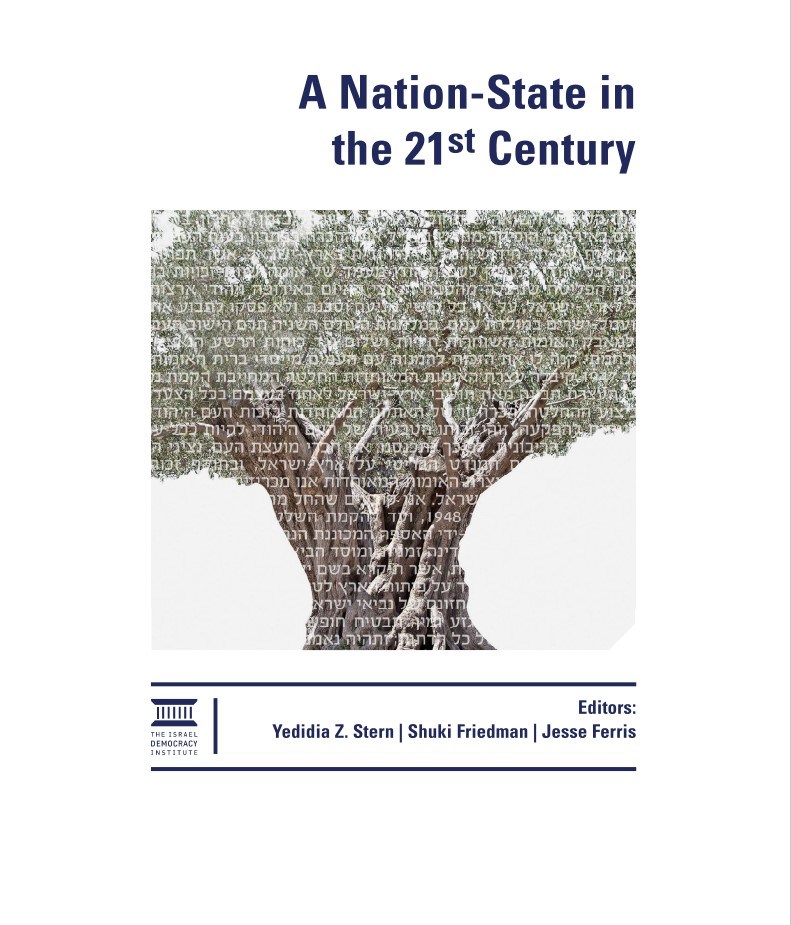

Publications Regarding Nation-State
Articles

Trivia Questions for Independence Day
Written By: The Israel Democracy Institute
Test your knowledge on Israeli history.

Israelis Are United – It’s Time for Our Leadership to Follow Suit
Written By: Yohanan Plesner
Polls reveal that despite apparent polarization, Israelis are remarkably united on almost every issue of importance, prioritizing hostage release, ending Haredi draft exemptions, and anchoring a constitutional framework—leaving only their leaders out of step with the national consensus.

“Democracy on the Frontlines” Conference Survey
Written By: The Israel Democracy Institute
Only a small minority of the Israeli public (8%) think that the judicial overhaul should be the government’s highest priority today; The majority of respondents (53%) support keeping the current structure of the Judicial Selection Committee. Only around a quarter (27%) suppor adding politicians to the Committee.

Advisory Opinion of the International Court of Justice on the Legal Consequences of Israel's Policies and Practices in the "Occupied Palestinian Territory"
Written By: Dr. Eran Shamir-Borer, Adv. Mirit Lavi
An in-depth analysis of the advisory opinion of the ICJ on the legal consequences of Israel's policies and practices in the 'occupied Palestinian territory.'
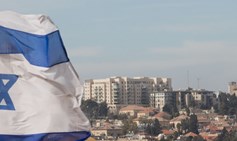
Nation-State Law Explainer
Written By: Dr. Amir Fuchs, Prof. Suzie Navot
Fact Sheet: The Basic Law: The Nation-State

The Worthy Clause in the Nation-State Law
Written By: Dr. Amir Fuchs
The Nation-State Law includes a clause that declares the state's obligation to care for all Jewish people and all Israeli citizens whenever they are in jeopardy due to either their Jewish identity or Israeli citizenship. This does not impose a legal obligation, but it does reflect this special value which must not be lost during this war.

Amend the Nation-State Law. Now.
Written By: Prof. Suzie Navot
Israel's non-Jewish minorities—particularly those who are fighting and dying for the State of Israel—are worthy of appreciation and recognition, not separately, but as equals. The solution is to amend the Nation State Law, not to pass a new, separate basic law as is currently under consideration.
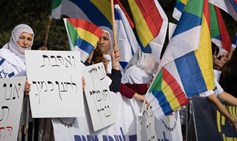
Israel’s Nation-state Law Isn’t ‘Declarative,’ It Does Real Damage
Written By: Dr. Amir Fuchs
"Legislative declarations do not remain purely "declarative". They have consequences." Dr. Amir Fuchs explains.

Two Identity Cards
Written By: Prof. Yedidia Z. Stern
The government must be attuned to the will of the overwhelming majority of the people and amend the Nation State Law by adding the obligation to act in the spirit of the Declaration of Independence
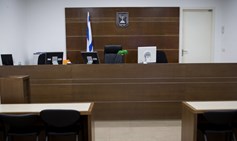
In Grand Debut, Israel's Nation-state Law Reveals Its Ugly True Colors
Written By: Prof. Mordechai Kremnitzer
The deputy president of the Jerusalem District Court inaugurated the Basic Law on Israel as the Nation-State of the Jewish People, issuing the first verdict based on it - imposing punitive damages on Hamas for the severe post-traumatic stress suffered by a Jewish Israeli wounded in a terror attack in Tel Aviv in 1998.
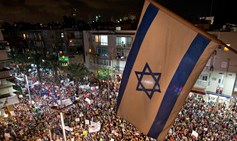
Jewish, Democratic—and Israeli
Written By: Yair Sheleg
We should simultaneously define Israel as the nation state of the Jewish people and at the same time---the state and home of all its citizens.
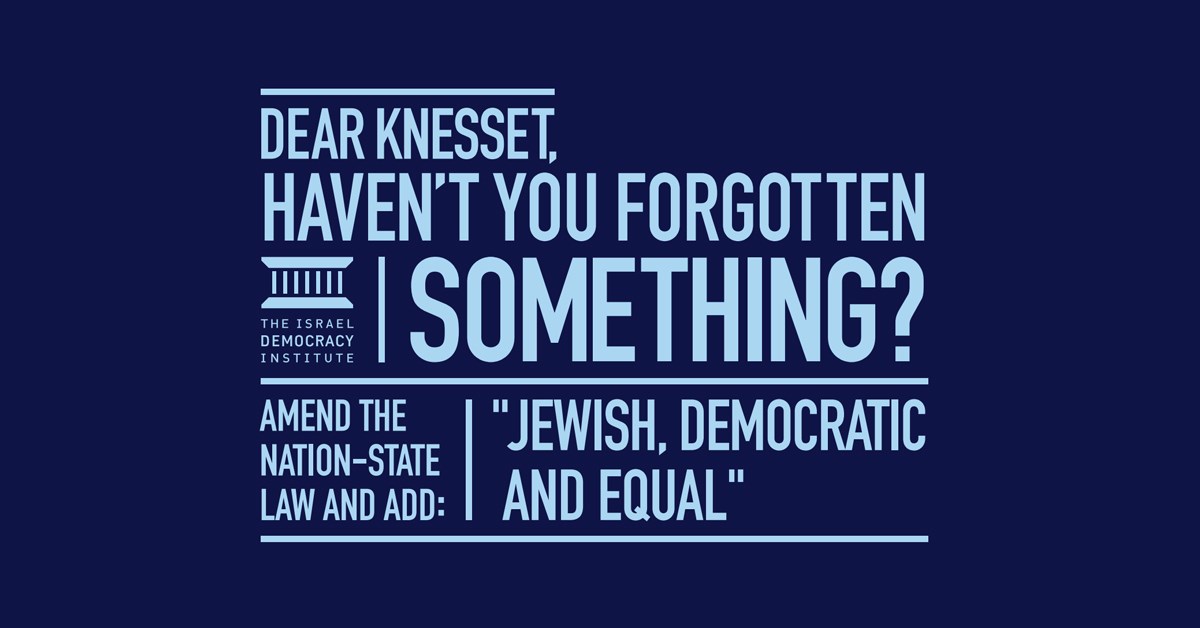
Q&A about the Nation-State Law
Amend the Nation-State Law and Add: "Jewish, Democratic and Equal"

Strengthening Jewish Peoplehood In The Diaspora — But Not In Israel
Written By: Yohanan Plesner
In the bill’s final wording, the state only commits itself to act within the Diaspora to strengthen the ties of Jewish peoplehood – as if actions taken inside the Jewish state, like the reneged-upon Western Wall compromise, have no bearing on the rest of the Jewish world.

Letter to the Israeli Government on the Nation State Bill
Written By: Yohanan Plesner , Prof. Yuval Shany, Prof. Yedidia Z. Stern
The Israel Democracy Institute issued a letter to the Prime Minister regarding the Nation State Billl, asserting that if the value of equality is not anchored in the legislation alongside the other enumerated national characteristics of the state, the law may eventually erode Israel's democratic character
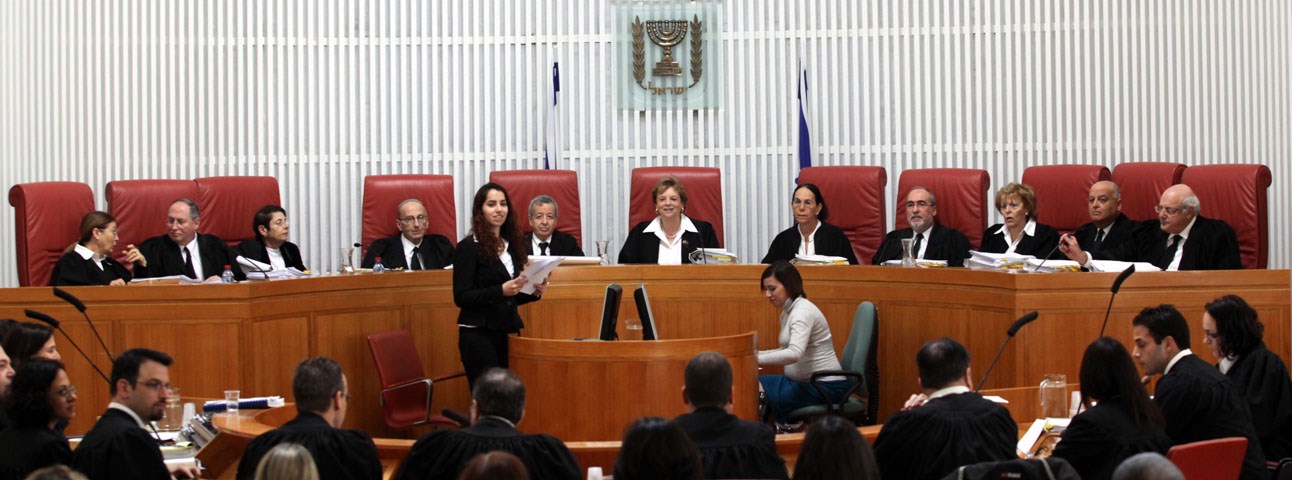
A Dishonorable Burial of the Constitutional Regime
Written By: Prof. Yedidia Z. Stern
The proposed amendment which will strip the Supreme Court of the power to invalidate legislation (“the British model”), or alternatively, would allow the Knesset, by a vote of 61 of its members to reinstate a law that the court has struck down (“the override clause”) pose a grave threat to every single Israeli citizen.

Battling Over Equality
Written By: Dr. Shuki Friedman
Israel's very legitimacy as a Jewish state is under attack.

Israel at 69 — Not What You Think
Written By: Prof. Yedidia Z. Stern
Ahead of Israel Independence Day: If we are willing to turn down the volume of the extreme voices and listen instead to the mainstream representatives in each of Israel's sectors, we will find cause for optimism about the shared Israeli future.

Personal Holocaust, Personal Responsibility
Written By: Dr. Shuki Friedman
As a second generation Holocaust survivor, Dr. Shuki Friedman says that, "beyond the responsibility of building our own lives and the state, there is also a personal responsibility not only to remember, but to pass on remembrance to the next generation."

The Festival of Freedom and Responsibility
Written By: Prof. Yedidia Z. Stern
The truly great task is to push ourselves to be accountable, personally and nationally, to the question of purpose.

Privatizing Religion
Written By: Yair Ettinger
Yair Ettinger discerns between different streams of Religious-Zionist Jews in Israeli society, and analyzes how these schisms play out in the socio-political arena. This piece was originally published by Brookings.
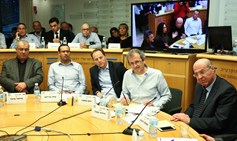
Arab Political Leadership in Israel
MK Dr. Benny Begin: "Before finalizing the five-year plan for the Arab community, 40 to 50 meetings were held between government representatives and Arab Knesset members."

IDI Scholars Call on Government to Implement Kotel Compromise
“The Kotel compromise presents a proper balance between the will and desire of Orthodox individuals - who are the majority of those praying at the Western Wall -- to continue praying in the main plaza as they always have, and the will and desire of other Jewish groups that want to pray in the vicinity of the Kotel according to their faith."

Is Israeli Society Frail Or Flourishing?
Written By: Prof. Yedidia Z. Stern
Is Israeli democracy weak, fragile and on the brink of collapse, or is it robust, stable and resilient?
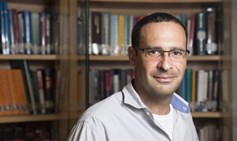
Rosh Hashanah Resolution
Written By: Dr. Shuki Friedman
The upcoming High Holidays are an opportunity to expand our perception beyond our selves and communities. This article was first published by the New York Jewish Week.

Is Israeli Society Healthy or Afflicted?
Written By: Prof. Yedidia Z. Stern
Rosh Hashanah, the Jewish New Year, is an opportunity to stop and ponder how much we love to forget or forget to love. This article was originally published by the Jewish Journal.
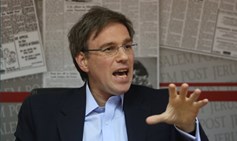
Bret Stephens: 'The Next US President May Not Be Pro-Israel'
“Bernie Sanders worries me. Hillary Clinton worries me. Donald Trump worries me, and frankly Ted Cruz kind of worries me too,” says Stephens.
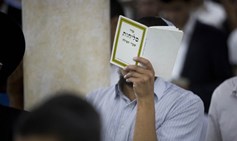
An Israeli Version of Repentance
Written By: Prof. Yedidia Z. Stern
The High Holy Days are a time of reflection and personal growth. But since the founding of the State of Israel, personal repentance is no longer enough. IDI Vice President Yedidia Stern stresses the need to transform Jewish traditions from the personal sphere to the public sphere and calls for collective, national repentance, Israeli style.

Democracy: The Key Election Issue
Written By: Prof. Mordechai Kremnitzer
In an op-ed in Maariv, IDI Vice President Prof. Mordechai Kremnitzer calls for an election campaign that focuses not only on foreign policy and Israel's social gap, but on the nature of Israeli identity and the value of Israeli democracy itself.

A Ready Alternative to the Nation State Law
Written By: Dr. Amir Fuchs
IDI researcher Dr. Amir Fuchs criticizes the proposed Basic Law that would establish Israel as the nation state of the Jewish people and recommends accepting Israel's Declaration of Independence as the preamble to Israel's future Constitution instead.
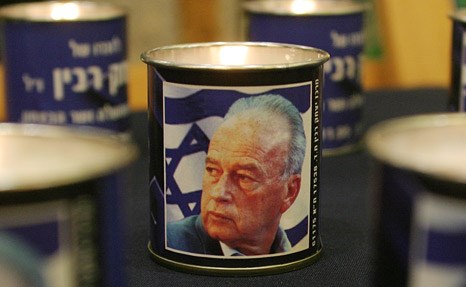
Israeli Democracy Day: Yitzhak Rabin's Legacy for the Future
Written By: Prof. Yedidia Z. Stern
On the 19th anniversary of the assassination of Yitzhak Rabin, Prof. Yedidia Stern asserts that if the annual memorial day for the late prime minister were to be observed as Israeli Democracy Day, Rabin's legacy for the future would be even greater.
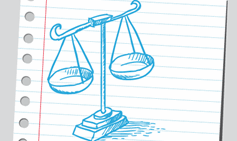
Basic Law: Nation State? Only a Constitution Can Guarantee Israel's National Character
Written By: Dr. Amir Fuchs, Prof. Mordechai Kremnitzer
Prof. Mordechai Kremnitzer and Attorney Amir Fuchs assert that the only way to guarantee Israel's existence as a Jewish and democratic state is not through a Basic Law that defining Israel as the nation state of the Jewish people but through a Constitution.

Censorship, Gag Orders, Military Censor, Media
Written By: Prof. Mordechai Kremnitzer, Dr. Amir Fuchs
Prof. Mordechai Kremnitzer and Attorney Amir Fuchs assert that the only way to guarantee Israel's existence as a Jewish and democratic state is not through a Basic Law that defining Israel as the nation state of the Jewish people but through a Constitution.

Shavuot in Israel: A Celebration of Torah or First Fruits?
Written By: Hizky Shoham
Dr. Hizky Shoham explores the multiple identities of the holiday of Shavuot, which began as an agricultural festival, was transformed into the "holiday of the giving of the Torah," and is most often commemorated as a celebration of Torah in today's Israel—by secular and observant Jews alike.

My Jerusalem: Thoughts for Jerusalem Day
Written By: Prof. Mordechai Kremnitzer
IDI Vice President Prof. Mordechai Kremnitzer shares thoughts on Jerusalem, which symbolizes what is most beautiful and exalted in Jewish culture: the commitment to law and morality, to justice and mercy.

Basic Law: Israel as the Nation State of the Jewish People – A Danger to the Zionist Enterprise
Written By: Dr. Amir Fuchs, Prof. Mordechai Kremnitzer
In an article in the Hebrew weekly <em>Makor Rishon</em>, Prof. Mordechai Kremnitzer and Attorney Amir Fuchs argue against the current initiative to pass Basic Law: Israel as the Nation State of the Jewish People, which they see as divisive and problematic.

Price Tag Attacks: Racist Crimes
Written By: Dr. Amir Fuchs
In an article in <em>Haaretz</em>, Attorney Amir Fuchs stresses the need to wage a genuine war against racism, in order to preserve the values of Zionism and safeguard the Jewish and democratic state.

Israeli Public Opinion on Reducing Funding to Organizations that Mark Independence Day as the "Nakba"
Written By: Mr. Chanan Cohen
What do Jews in Israel think about the law mandating the reduction of government funds to institutions that mark Israel Independence Day as a day of mourning for the Palestinian "Nakba"? Find out in this mini-survey conducted by IDI's Guttman Center.

Public Opinion: Is Israel Independence Day a Holiday?
Written By: Mr. Chanan Cohen
Do Jewish and Arab citizens of Israel see Yom Ha'atzmaut as a holiday? Do perceptions among Jews vary depending upon level of religiosity or position on the right-left political spectrum? Find out in this Mini-Survey from IDI's Guttman Center.

On Leadership and Responsibility: The Lessons of the Purim Story
Written By: Shira Ruderman, Benjamin (Benny) Lau
Rabbi Dr. Benny Lau and Shira Ruderman, Israel Director of the Ruderman Family Foundation, share thoughts on the Purim story, leadership, responsibility, and repair of the world.

The Electoral Threshold: Why the Rush?
Written By: Prof. Ofer Kenig
In an op-ed in the Jerusalem Post, Dr. Ofer Kenig warns that while there is nothing wrong with a moderate increase in Israel's electoral threshold, increasing it from 2% to 3.25% in a single step is problematic.

The IDF and the Ultra-Orthodox
Written By: Haim Zicherman
As the Knesset prepares to vote on the "Draft Law" designed to regulate the service of ultra-Orthodox men in the Israel Defense Forces, Dr. Haim Zicherman surveys the current situation within Israel's Haredi community.

Is "Israeli" a Nationality?
Written By: Jay Ruderman, Prof. Yedidia Z. Stern
Should the State of Israel recognize "Israeli" as a nationality? IDI Vice President Prof. Yedidia Stern and Jay Ruderman assert that it is imperative for the State of Israel to continue distinguishing between citizenship and nationality.

Building a Shared Society: On the Priorities of the Israel Police
Written By: Prof. Mordechai Kremnitzer
Prof. Mordechai Kremnitzer explains the importance of the fifth meeting of IDI's Police and Society Forum, which was dedicated to the question of partnership and transparency in the relationship between the Israel Police and Arab society.

International Disabilities Day 2013: Human Rights and Judaism in Action
Written By: Benjamin (Benny) Lau
In honor of International Day for Persons with Disabilities, Rabbi Dr. Benjamin (Benny) Lau updates us on IDI's efforts on behalf of people with disabilities and reveals that people with guide dogs are now allowed to access the Western Wall.
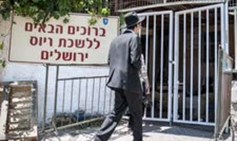
The Haredi Draft: Equality Now?!
Written By: Prof. Yedidia Z. Stern
On November 21 2013, Prof. Yedidia Z. Stern appeared before the Shaked Committee and argued that criminal sanctions are not recommended for reaching conscription goals. In an op-ed in Makor Rishon, he explains why.
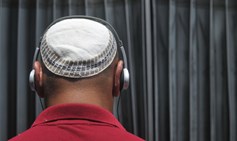
No to the Separation of Religion and State in Israel
Written By: Yair Sheleg
Should the American model of separation of church and state be applied to Israel? In an article in <em>The Jewish Week</em>, IDI's Yair Sheleg argues that Israel needs a unique model.
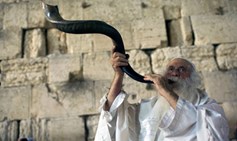
Standing before God: Reflections on Yom Kippur
Written By: Yair Sheleg
Why is Yom Kippur the most significant day on the Jewish calendar? What explains its appeal even to people who define themselves as "secular"? IDI research fellow Yair Sheleg shares his thoughts on this matter.

Life Under Two Suns: When Human Rights and Jewish Values Collide
Written By: Prof. Yedidia Z. Stern, Jay Ruderman
The first in a series of articles by researchers from IDI's Judaism and democracy projects and Human Rights and Judaism project on the complementary but tense relations between Judaism and democratic values.

The High Holidays: A Personal and National Time
Written By: Prof. Yedidia Z. Stern
Prof. Yedidia Z. Stern shares thoughts on the Hebrew calendar, which contributes to Jewish unity and preserves the Jewish people as a single national and cultural unit.
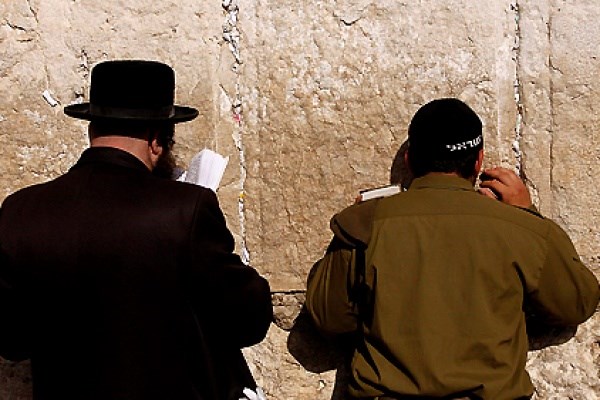
How Can We Draft the Ultra-Orthodox with Consent?
Written By: Prof. Yedidia Z. Stern
Is it possible to draft the ultra-Orthodox and integrate them into Israel's society and economy in a mutually-agreeable manner that encourages solidarity between the different sectors of the Jewish people? Prof. Yedidia Z. Stern shares thoughts on wars between brothers and brothers-in-arms.
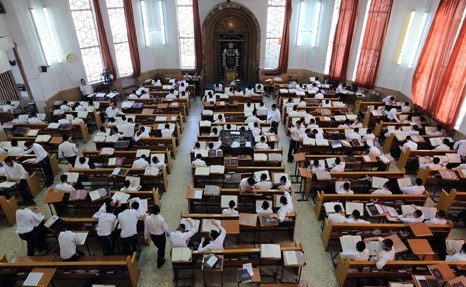
The Ultra-Orthodox Draft: Crossing the Third Rubicon
Written By: Prof. Yedidia Z. Stern, Haim Zicherman
Prof. Yedidia Z. Stern and Attorney Haim Zicherman stress the need to break down barriers that are preventing Haredi service in the army and integration in the labor force, and warn against passing a popular but ill-advised reform.

The Jewish and Democratic State: Zionism is Not Racism
Written By: Dr. Amir Fuchs
In an op-ed in Haaretz, Attorney Amir Fuchs asserts that Israel is both the nation-state of the Jewish people and a democratic state, despite the confused Zionism of Mayor Shimon Gapso of Upper Nazareth.
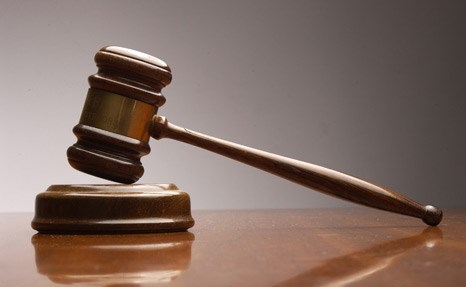
Basic Law: Israel as the Nationalist State of the Jewish People
Written By: Dr. Amir Fuchs, Prof. Mordechai Kremnitzer
In an op-ed originally published in Maariv, Prof. Mordechai Kremnitzer and Attorney Amir Fuchs warn that the Basic Law: Israel as the Nation State of the Jewish People would undercut the balance between the "Jewish" and "democratic" nature of the State of Israel.

Jabotinsky's Vision of a Democratic, Jewish Nation State
Written By: Dr. Amir Fuchs
In honor of Israel's 65th birthday, Attorney Amir Fuchs reflects on whether the reality of today's Israel adheres to the values and vision of early Zionist leader Ze'ev Jabotinsky.
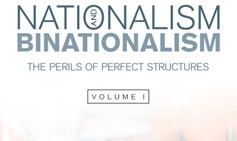
A Zionist State, a Binational State and an In-Between Jewish and Democratic State
Written By: Sammy Smooha
In this article, reprinted from Nationalism and Binationalism: The Perils of Perfect Structures, Prof. Sammy Smooha presents three models of Israel's national character, focusing on Israel's identity as a Jewish and democratic state.
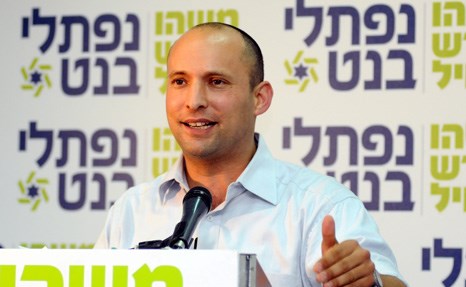
Habayit Hayehudi and Refusal of Orders: The Real Question
Written By: Prof. Yedidia Z. Stern
Naftali Bennett's statement that he would refuse orders if commanded to evacuate settlements raises questions about the type of insubordination that he and his party condone. In an op-ed in Yedioth Ahronoth, Prof. Yedidia Stern calls on Habayit Hayehudi to clarify its position on the matter.

Protest and Punishment
Written By: Prof. Mordechai Kremnitzer
If Israeli performing artists consider the establishment of settlements in Judea and Samaria to be immoral, is it wrong for them to refuse to perform there? In an op-ed in Haaretz, IDI Vice President of research Prof. Mordechai Kremnitzer defends such boycotts as an exercise of the right to free speech and protest.

A Boycott on Both Your Houses
Written By: Prof. Yedidia Z. Stern
Is the boycott of the town of Ariel, which is located over the Green Line, by Israeli performing artists legitimate? In this op-ed from Yedioth Ahronoth, IDI Vice President Yedidia Z. Stern warns that this type of organized opposition to democratic decisions endangers the delicate fabric of Israeli life.

As Independence Day Draws Near
Written By: Prof. Yedidia Z. Stern
In an op-ed in Yedioth Ahronoth, Prof. Yedidia Stern points to segments of Israel's population that denounce the national values of the State: supporters of “normalization,” ultra-Orthodox Jews, Arab Israelis, and a new group that has joined them: ultra-nationalists.

One on One: "As Great a Threat as Iran"
Written By: Dr. Arye Carmon, Ruthie Blum Leibowitz
An interview in which IDI Former President and Founder Dr. Arye Carmon discusses the Institute's achievements, his views on the government and its size, and the connection between his expertise on Nazi Germany and his research on democracy.

Israel at 60: On the Road to Democratic Maturity
Written By: Barak Cohen
Barak Cohen discusses how Israel's lack of a constitution manifests itself today as unanswered fundamental questions of seemingly irreconcilable identities. The steps of progress and maturity have to consist of compromises and rationality.

Israel: A Society of Immigrants
Written By: Karin Tamar Schafferman
Since its establishment in 1948, Israel's demographics have shifted greatly due to large immigrant waves (aliyot). This article examines several models of cultural absorption, analyzes the success of Israeli absorption efforts in the past, and proposes possible improvements for the future.
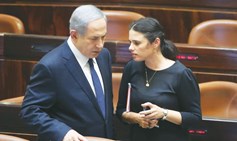
Who's Afraid of a Jewish State with Equality for All?
Written By: Yohanan Plesner
A state that is proud of its identity has nothing to fear from granting all its citizens equality.

Harmful Revolution: The Nation-State Bill’s Assault on Equality
Written By: Prof. Yedidia Z. Stern
Israelis must unite around a balanced arrangement that asserts that Israel is the nation-state of the Jewish people that guarantees equality for all its citizens.

The Nation State law
Written By: Yohanan Plesner , Prof. Mordechai Kremnitzer, Prof. Yedidia Z. Stern
If Israel was founded as the state of the Jewish people, why is a nation-state law so problematic, having already toppled one government?

The Voice of Our Brothers' Blood
Written By: Prof. Yedidia Z. Stern
The whole world must be the arena of the war against antisemitism and the Jewish nation-state must serve as the supreme commander in this universal conflict.

'Yes' to a Nation-State, 'No' to a Nationalistic State!
Leaders of the Israel Democracy Institute call for alternative proposal that would place nation-state of the Jewish people on equal footing with democratic obligation to equality for all Israeli citizens.
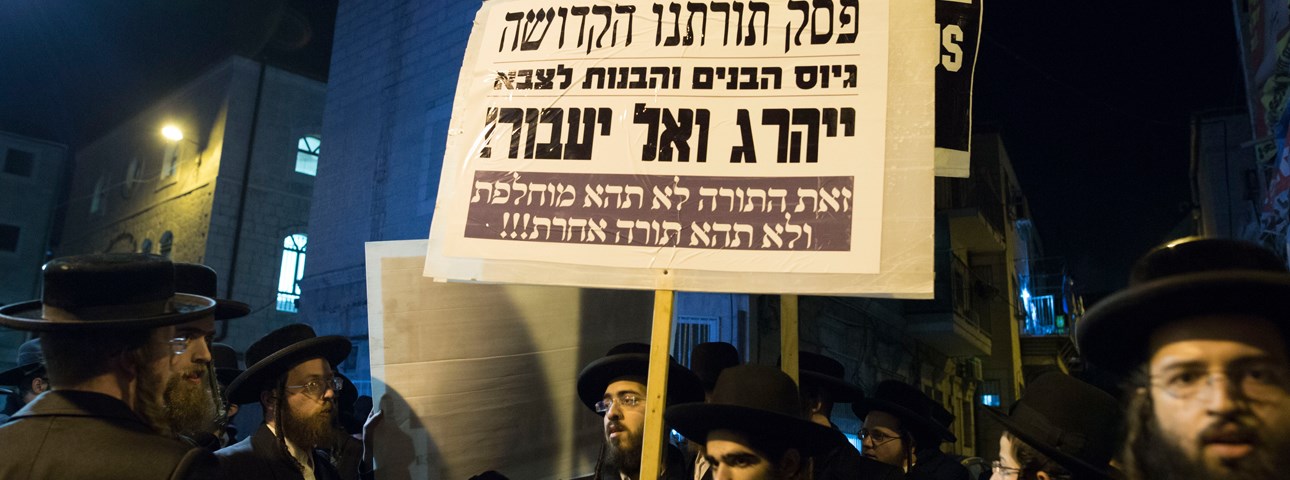
What remains of the religious status quo?
Written By: Dr. Shuki Friedman
Instead of Judaism being what unites Jews in Israel with Jews around the world, our religion has become the main source of conflict.
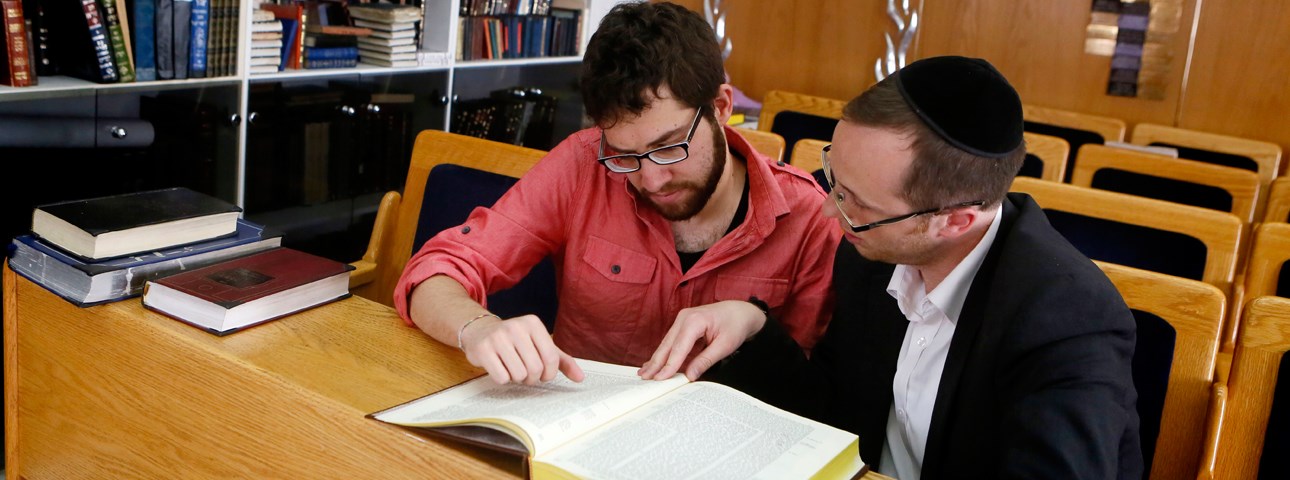
Voyage to Identity
Written By: Prof. Yedidia Z. Stern
Prof. Yedidia Stern argues that our Jewish identity and culture depend on how we understand and internalize the past.

Surveys: 50 Years Since the Six-Day War
The Guttman Center for Public Opinion and Policy Research (then the Guttman Center) carried out a series of surveys just before, during and after the war.

